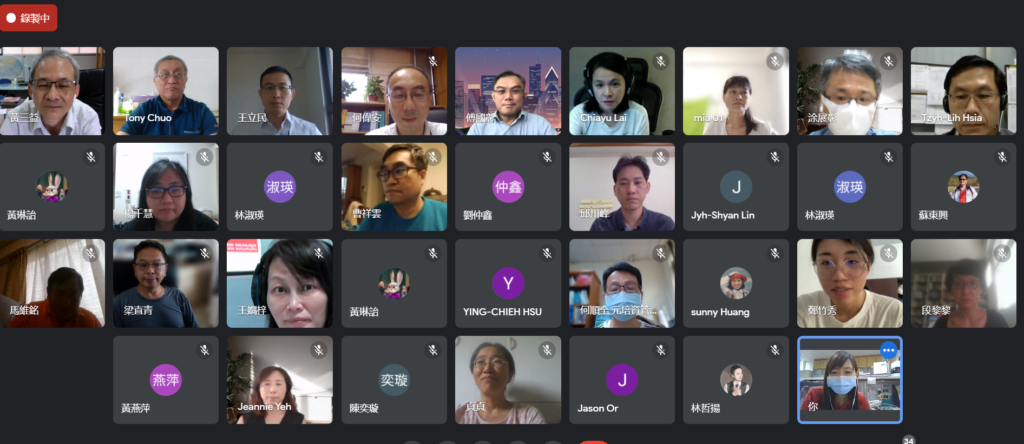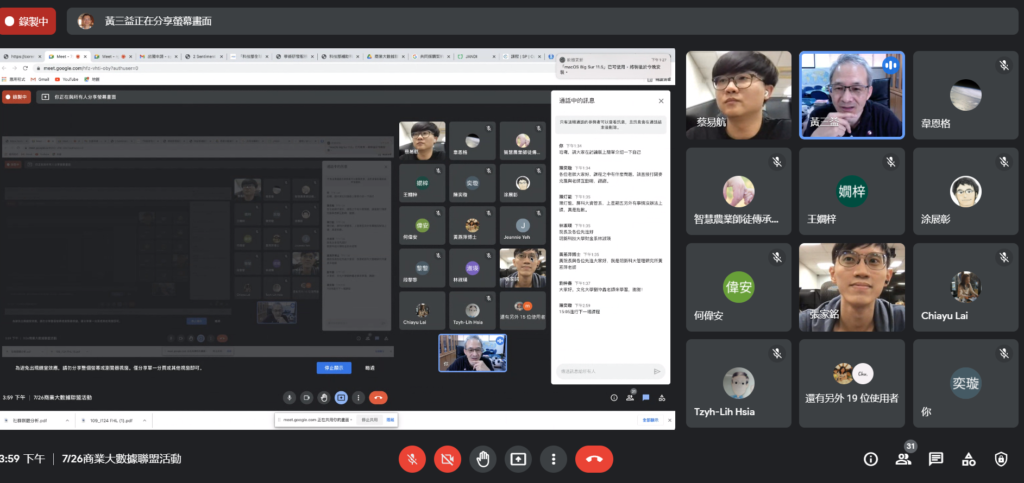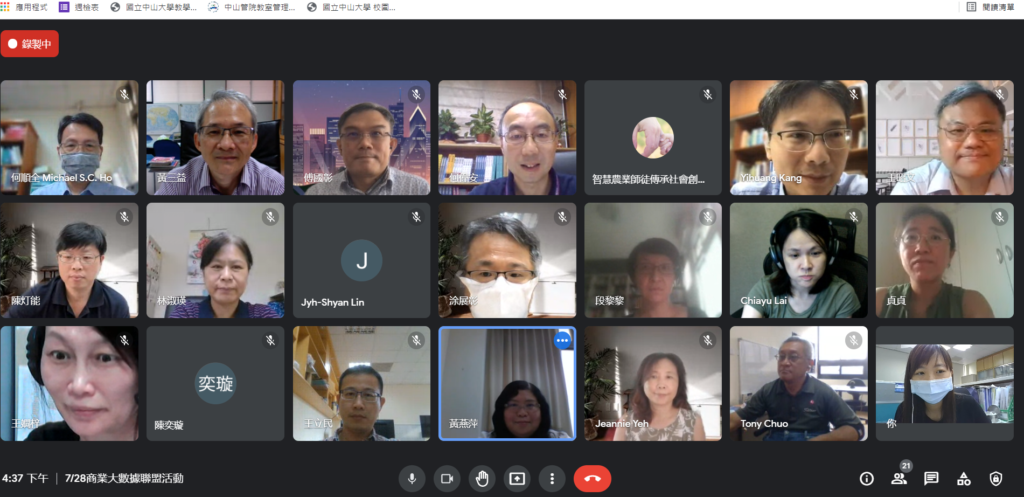Due to the continuous technology development of big data, machine learning, and artificial intelligence, the application of data science is gradually becoming more important, and the demand for talent in business data analysis skills is increasing. Many schools are now offering data science related programs. The College of Management, National Sun Yat-sen University (NSYSU), in collaboration with business schools from many other universities, offered a series of “Business Data Analytics Teacher Training Courses” from July 23 to July 28. By establishing this teaching resource platform, the College hopes to lower the threshold for business school students to move into programming, integrate business logic and management skills, and cultivate a new generation of talent with the ability to analyze business data and lead the digital transformation of enterprises.

Teachers from different universities, including Cheng Shiu University, National Formosa University, Minghsin University of Science and Technology, Chihlee University of Technology, National Pingtung University of Science and Technology, National Pingtung University, and Yuanpei University of Medical Technology, participated in the three events. Through this sharing among teachers from different schools, it was found that the biggest difficulty in introducing big data or business analytics courses is the students’ learning effectiveness. The focus of teaching in technical schools is on the application, but many students encounter problems in tools and environment development. In the past few years, the College has been working hard to build a comprehensive business data analytics platform with the aim of reducing these barriers. During the three-day event, teachers from the College shared business data, analyzed the content of their courses, and introduced the resources available at the College in order to help other teachers gain a deeper understanding of this platform.
The event started with Dr. Li-Min Wang’s introduction to the Cross-Disciplinary Smart Innovation Program, which integrates the content of online courses from leading business schools such as Harvard, Wharton, and MIT. The program is divided into three micro-programs according to the fields, namely business big data analytics, digital marketing and e-commerce, and financial technology and financial services. Through this cooperation with business, students can better understand how the different industries use these data to make digital decisions. In addition, Dr. Wang also introduced the big data analytics platform and text analysis platform that NSYSU currently provides. The former allows for better performance in processing large amounts of data; the latter allows students to retrieve data online and process and analyze text data in advance, all on the same platform. Finally, Dr. Wang introduced a learning map of a set of online learning resources on the website of the College’s Business Big Data Platform, which includes international audio and visual courses, e-books, students’ works, etc. Anyone can learn on the website according to their needs.

The next course was the Business Data Analytics course, taught by Assisting Professor Yung-Jan Cho. The teacher explained, “Students come from different departments such as business management, information management, finance management, and marketing, and if they want to go from not knowing how to write programs to understanding the programing languages and learning how to analyze and make decisions through programs, they have too much to learn. Therefore, in terms of grouping, each group has been assigned students of different majors so that they can teach and learn from each other when they work together.” Dr. Cho also presented another course on digital marketing. He hopes that after this course, students will be able to make enterprise-level marketing decisions from the perspective of a digital manager, not just as a social media editor in digital marketing.
Social Media Analytics was presented by Prof. San-Yih Hwang, the Dean of the College of Management. Prof. Hwang said that although this class focuses on programmatic data processing, he also shared the “Text Analysis Workflow System” that he had built with his students. This system has a graphical interface, drag-and-drop operation, and the flexibility to set parameters at each node. By understanding the basic applications of text analysis and using this workflow system, anyone can perform text analysis and its application. Compared with other online open source software, this system is more focused on text data and is more detailed. In addition, it is also designed for Chinese text mining. Prof. Hwang hopes that, in the future, it will be available for university teachers to apply it to accounts and to use it in the classroom.

In the class on Big Data Analytics and Introduction, Dr. Yihuang Kang shared his insight into data scientists: “The Harvard Business Review says that data scientists are the sexiest profession in the world. However, according to statistics, there are fewer and fewer data scientists abroad.” This is because more and more platforms, such as Google and AWS, are providing automated, modular systems that can automate modeling. The teacher expressed his hope that students could learn how to carry out data analysis from his course instead of using tools. The class touched on many concepts of statistics, data analysis, and programming that are considered advanced in the micro-programs, as well as social media analytics.
The final session of the event was a presentation by Prof. Chou-Wen Wang on financial technology and financial services. Students were required to take the basic courses shared above, in order to gain the ability to write programs and think in terms of data analysis, and then make practical contact with the industry through the class. This semester, they were working with Taishin Bank and O-Bank. One of the interesting aspects mentioned by Prof. Wang was that the CEO of O-Bank suggested that students should come up with a list of potential customers, and the company would actually draw up a strategy based on this list. The assessment at the end of the semester received positive feedback from O-Bank. This experience not only allowed the students to participate in the problem-solving process but also increased the interaction between industry and academia.
Mr. Kuo-chang Fu, Secretary General of the Chinese Institute of Business Education Development (CIBED), said that after looking at international trends, many business schools are combining information and marketing in their courses, and the College has a complete system in this area. Therefore, through the linkage of the Vital Wellspring Group, he hoped to create an alliance with schools with expertise in various fields, combine each other’s fields of expertise to develop an education system for business data analytics, and provide a better quality learning environment for students.
(Written by Joo-Soo Cheng from the Department of Information Management / edited by the College of Management)